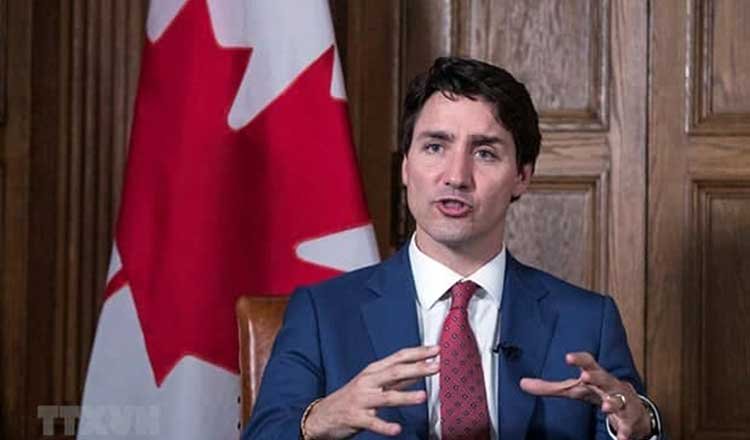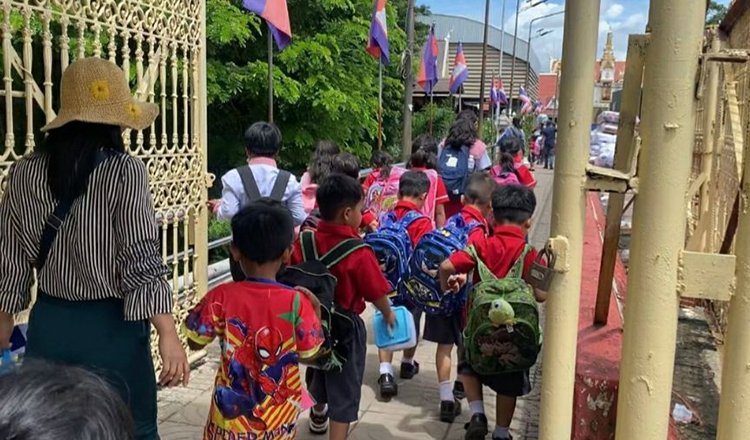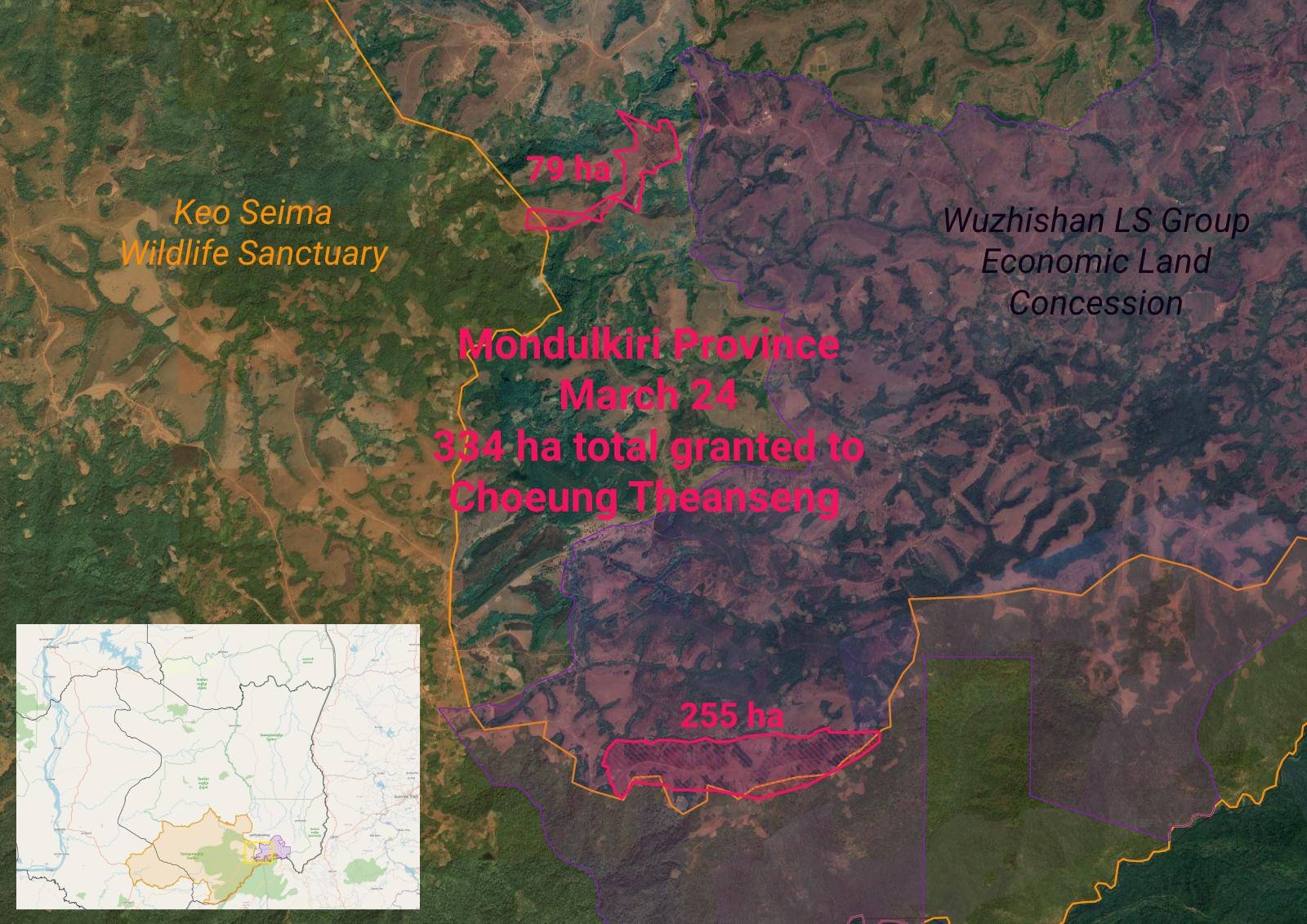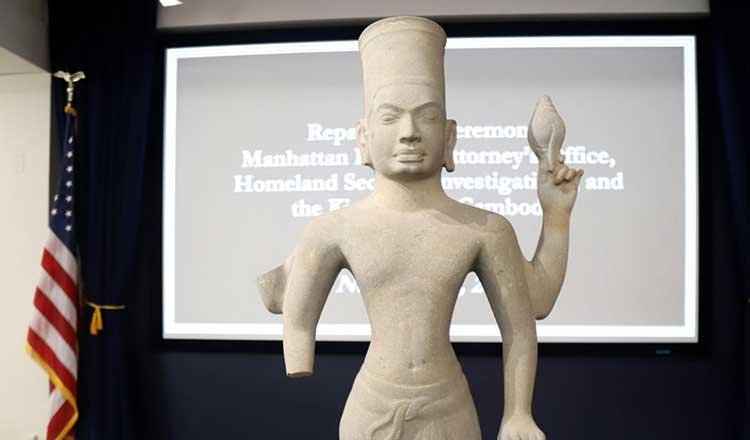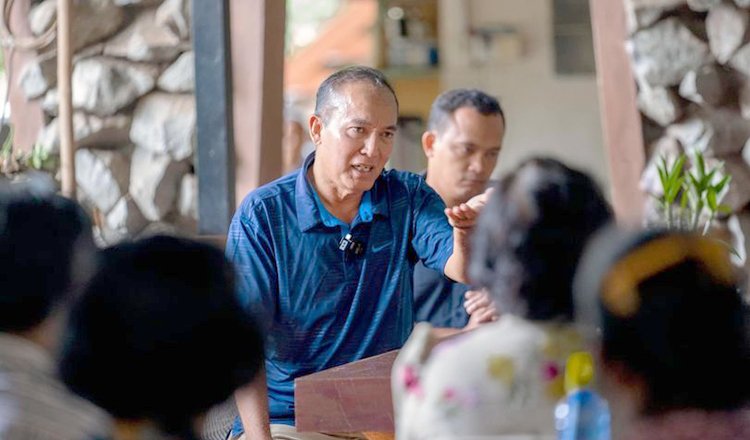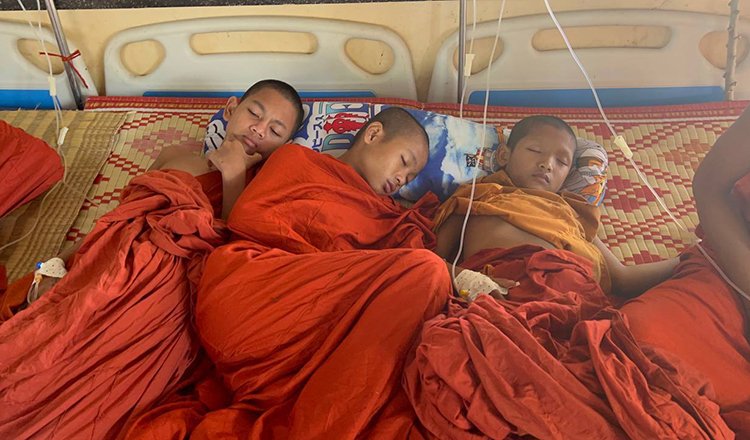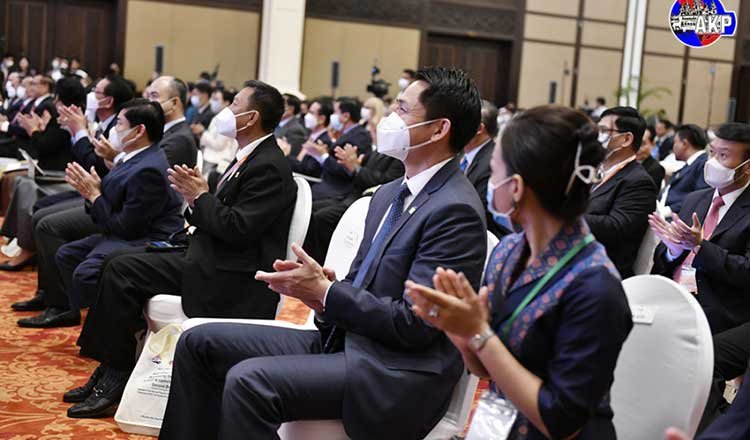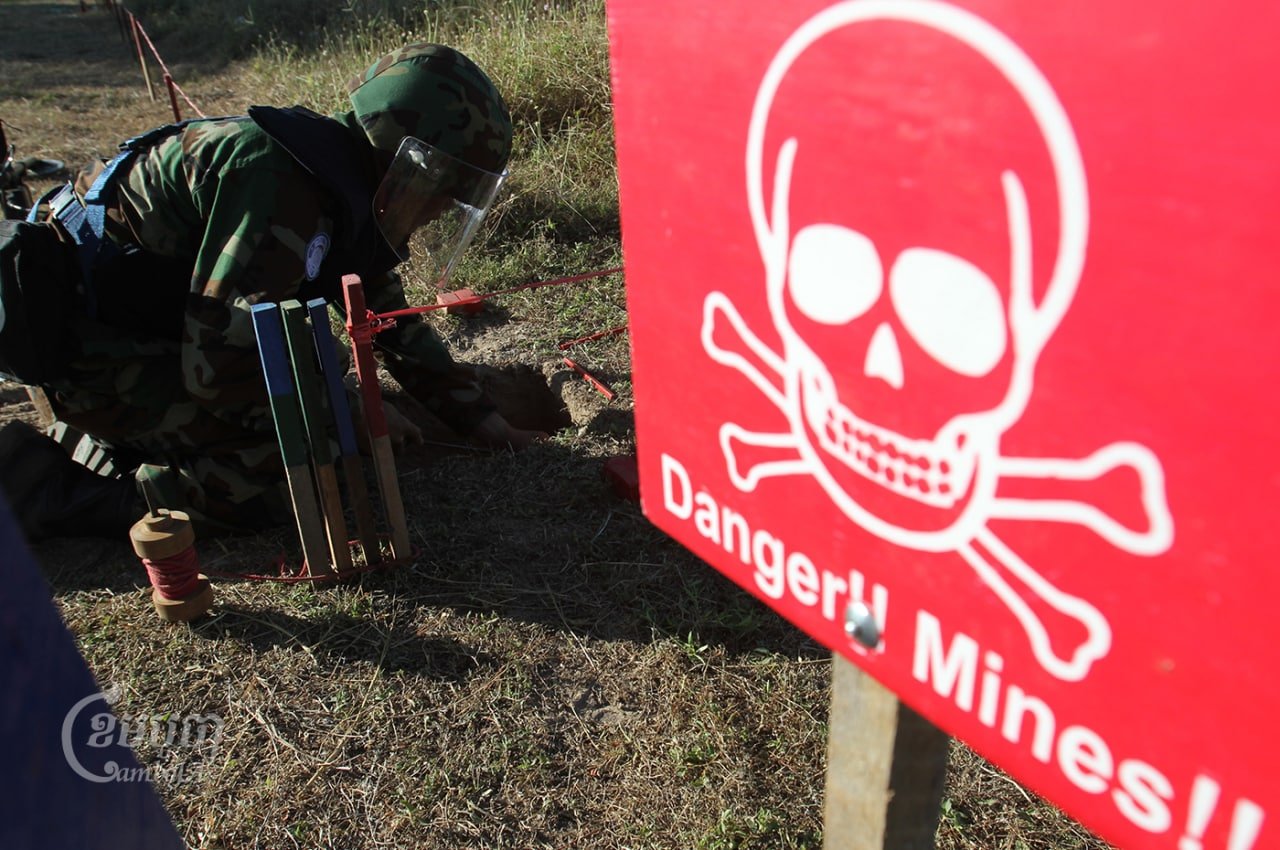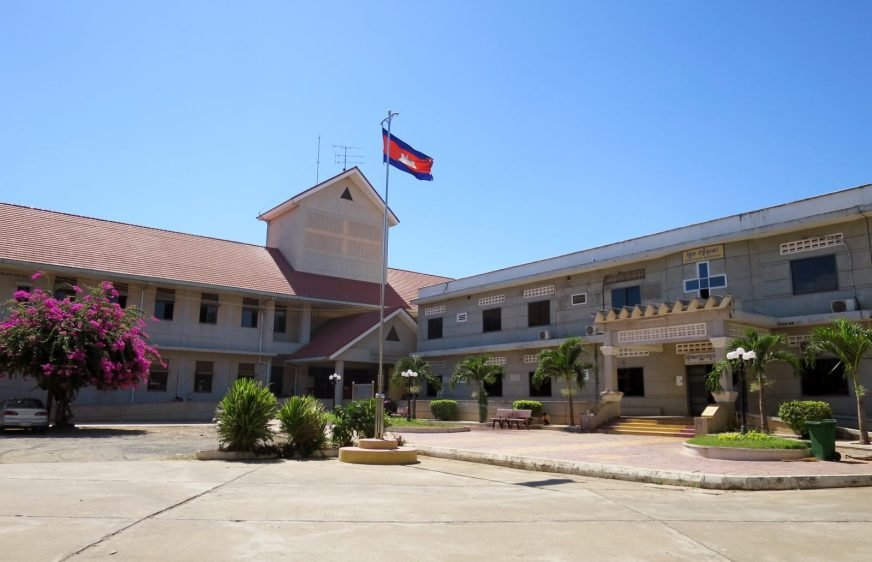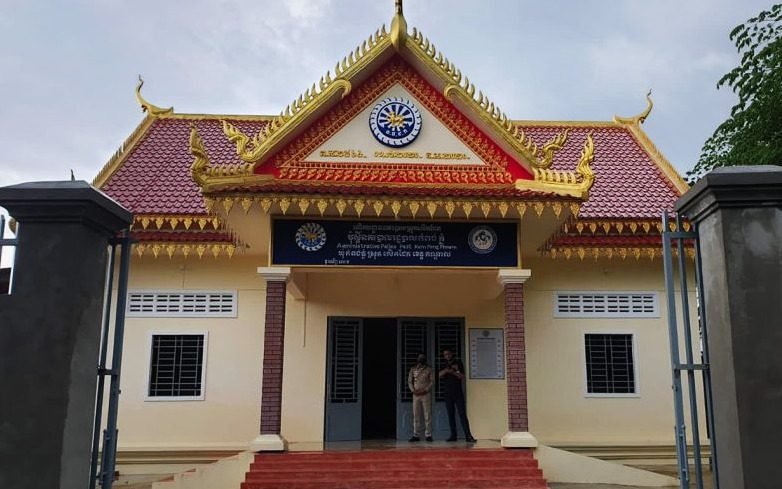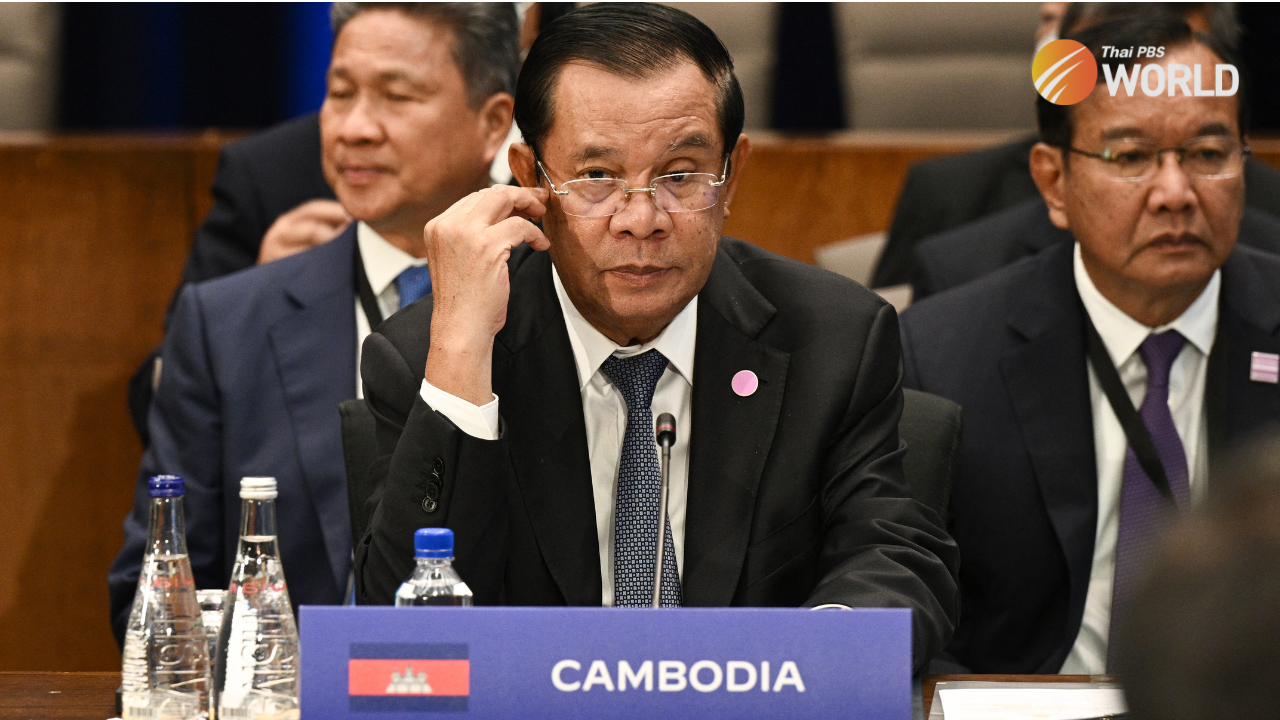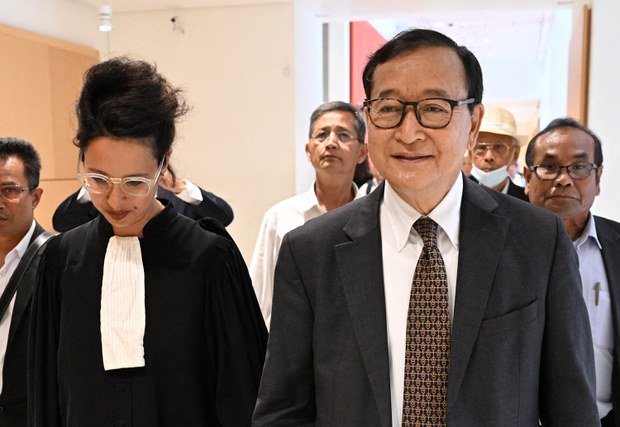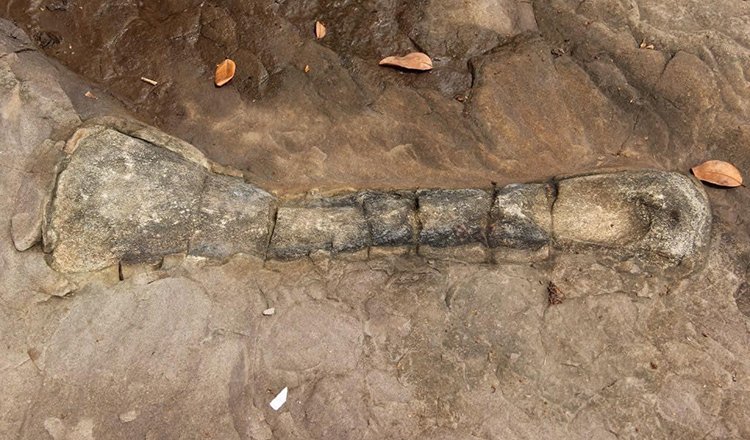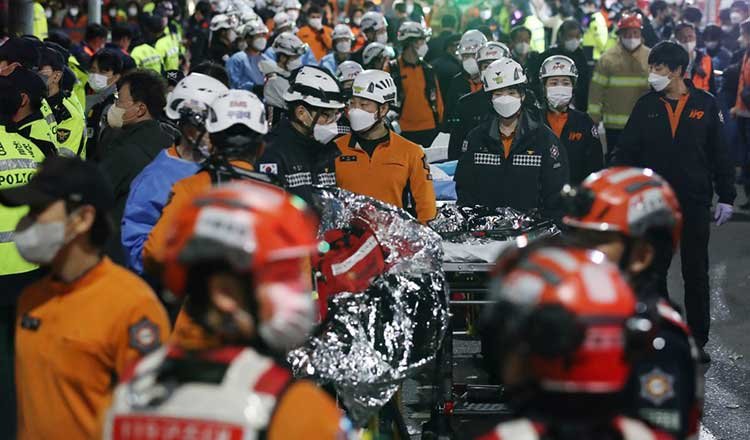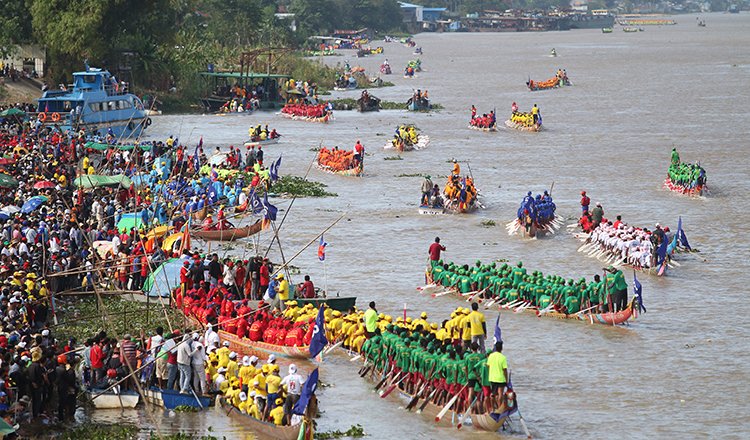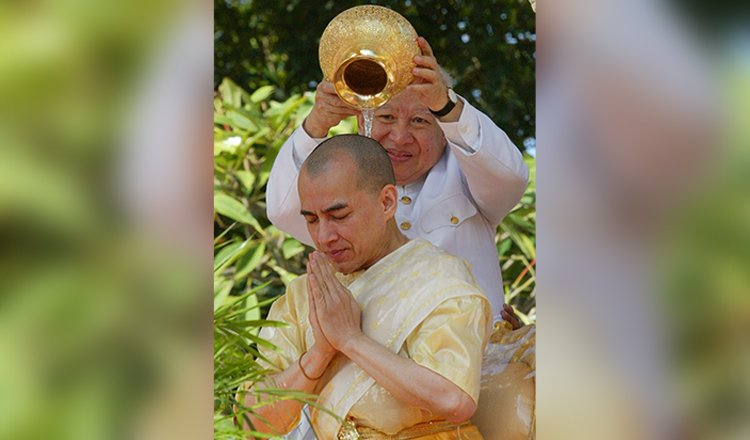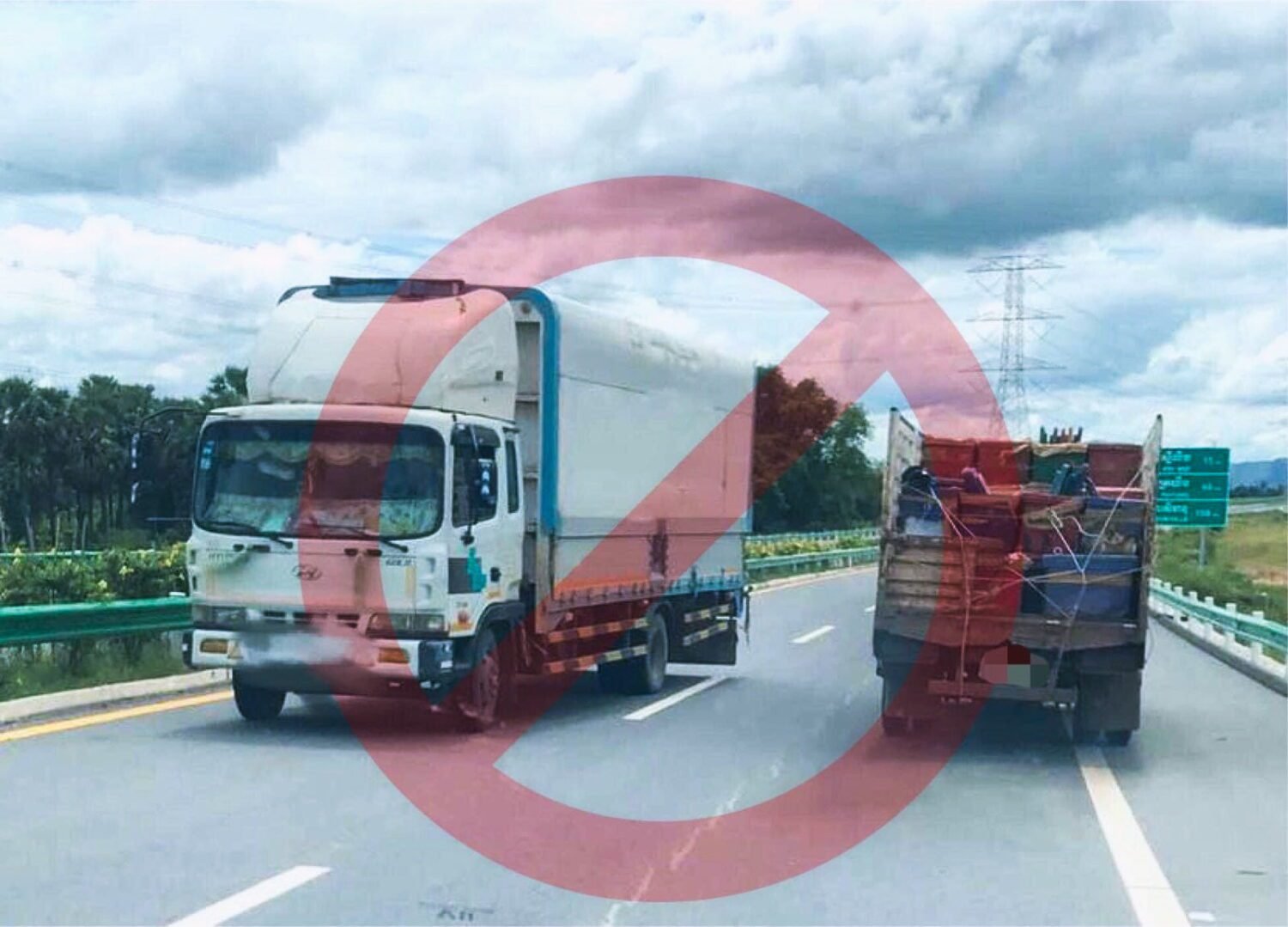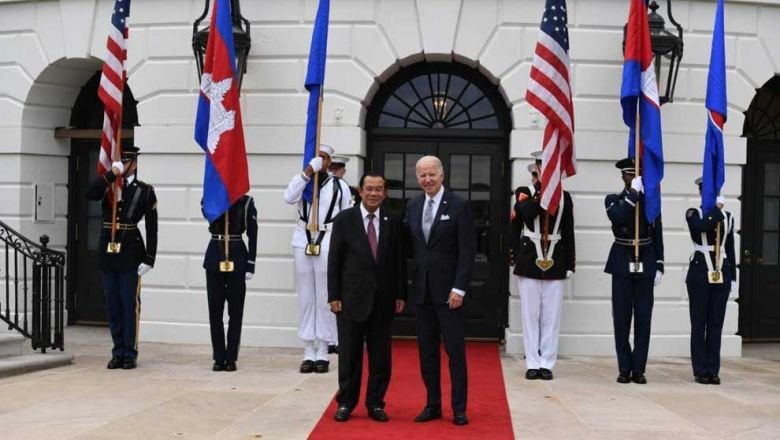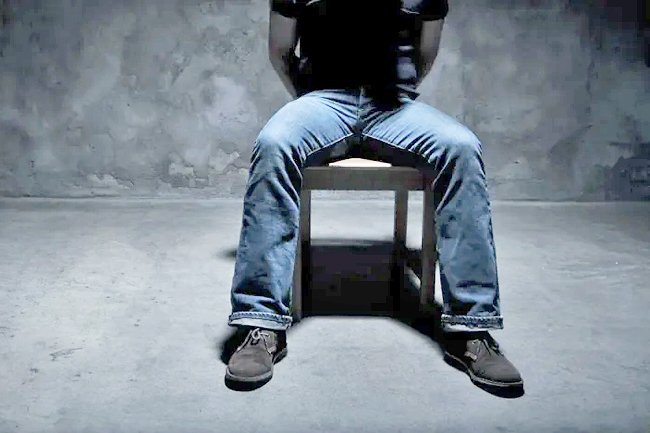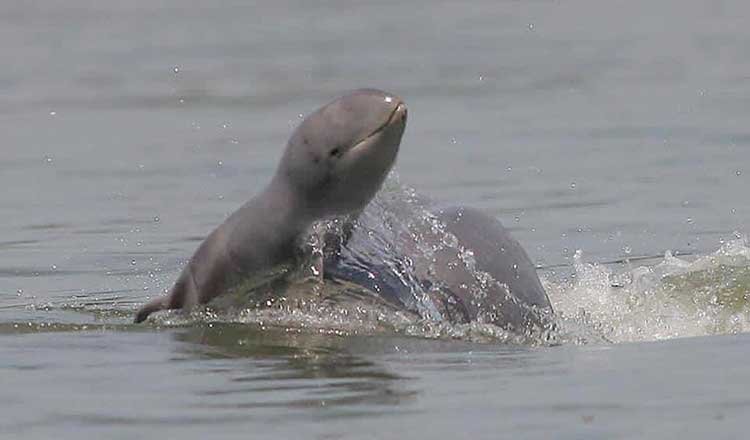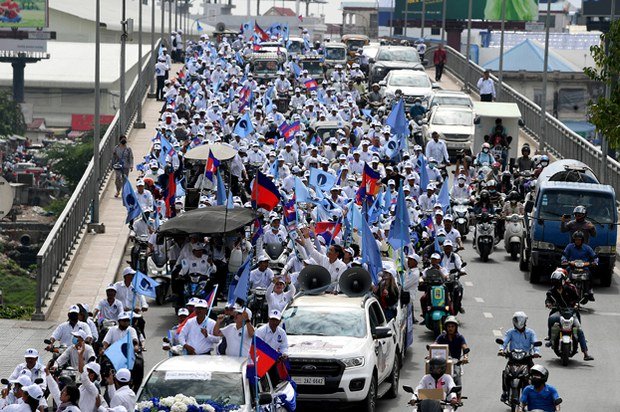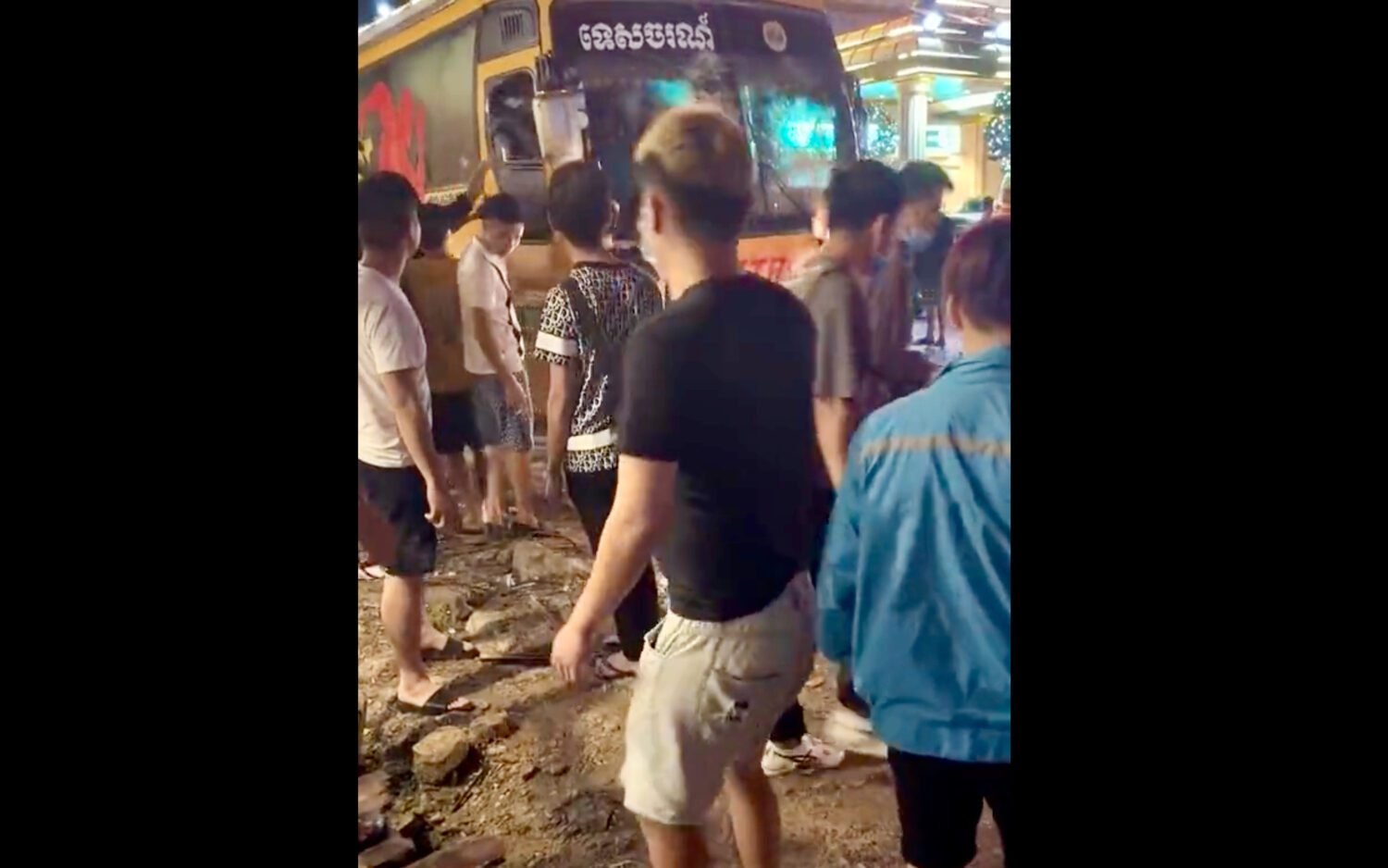-
Posts
15,833 -
Joined
-
Last visited
Content Type
Events
Forums
Downloads
Quizzes
Gallery
Blogs
Everything posted by geovalin
-
The Prime Minister of Canada, Justin Trudeau announced that he will participate in ASEAN Summit in Phnom Penh, according to a statement. From November 12 to 13, 2022, the Canadian Prime Minister will address regional and global challenges with his counterparts in the ASEAN and broader Indo-Pacific region, said the source, pointed out that he will participate in the ASEAN-Canada Commemorative Summit to mark the 45th anniversary of ASEAN-Canada dialogue relations. Under the ASEAN Summit’s theme of “Addressing Challenges Together”, it continued, Justin Trudeau will promote regional peace and stability, rules-based trade, economic growth that benefits everyone, and strong ties between our peoples. read more https://www.khmertimeskh.com/501179812/canadian-prime-minister-confirms-his-participation-to-asean-summit/
-
The move by Thai Immigration to stop Cambodian children from entering the country by themselves to attend Thai schools has caused an uproar among the children’s parents. On Wednesday, the Thai Immigration at the Poipet-Khlong Leuk crossing forbade unaccompanied students from going to their school across the border and would only allow students who were accompanied by their parents and guardians. One parent, Seng Sereyrith, said the restriction has made it difficult for working parents who could not accompany their children. Sereyrith was among the 40 parents who took their case to the Cambodian Counsul in Aranyaprathet in Thailand’s Sa Kaeo province, seeking intervention, yesterday. Sereyrith said his children would go to their Thai primary school by bicycle every day. “I have to work and that is why I do not have the time to take them to school. My children have their border passes and it has never been an issue for them to go to school by themselves. “It is difficult because parents do not have enough time to take them to school and pick them up from school every day,” said Sereyrith. read more https://www.khmertimeskh.com/501179545/new-border-ruling-upsets-poipets-parents/
-
Hundreds of hectares in Mondulkiri were sold to a major tycoon’s family for as low as 600 riel per square meter, a government document suggests, and is facing protests from existing residents. An apparent Council of Ministers document seen by VOD transfers 334 hectares in Mondulkiri’s Sen Monorom city and O’Reang district to Choeung Thean Seng, the son of Pheapimex tycoon Choeung Sopheap. Sopheap is married to Senator Lao Meng Khin. The document is labeled a “declaration,” and predates a government sub-decree issued a day later in March and since released publicly. The declaration contains key details missing in the sub-decree: notably the state land’s sale price during privatization. Some 79 hectares in Sen Monorom city’s Romnea commune was sold for $2,000 per hectare — or $0.2 per square meter, according to the document. Additionally, 255 hectares in O’Reang’s Sen Monorom commune was sold for $1,500 per hectare, or $0.15 per square meter, about 600 riel, the document says. read more https://vodenglish.news/document-suggests-state-land-sale-to-tycoon-at-discount-price/
-
Another piece that passed through a disgraced dealer’s New York gallery has gone back to Southeast Asia. On Wednesday, the Manhattan District Attorney’s office announced the return of a Vishnu statue from a 7th-century temple to Cambodia. The statue was given over in a repatriation ceremony attended by United States ambassador Keo Chhea and a member of the U.S. Homeland Security Investigations team. The district attorney’s office of Alvin L. Bragg said the Cambodian statue was broken and looted from its original location under Wiener’s direction. After restoration work was completed, the sandstone figure was smuggled into Manhattan through Thailand in 1995 and sold to a private collector. read more https://www.artnews.com/art-news/news/stolen-seventh-century-statue-cambodia-manhattan-district-attorney-doris-wiener-1234645453/
-
Half of the remaining 1,000 die-hard followers of Khem Veasna’s doomsday prophecy, who earlier had steadfastly refused to leave the farmstead where they had gathered, are now departing. In addition, Veasna has also acknowledged that large numbers of his followers are abandoning him. As people leave and authorities refuse entry to the property, Veasna has instead resorted to holding gatherings outside his farmstead to continue to spread his prophecy about the end of the world. At a gathering on Tuesday, more than 700 people attended in Preah Dak commune, Banteay Srei village to listen to Veasna. Banteay Srei Police Chief Colonel Long Samnang said yesterday that on Tuesday, Veasna who is president of the League for Democratic Party (LDP), held a gathering to spread his doomsday message. “Every time he has a gathering outside the farmstead, hundreds of people attend. He spreads the word about his dharma and continues to view himself as the Brahma who will save people from a devastating flood,” he said. read more https://www.khmertimeskh.com/501178753/doomsday-believers-losing-faith-in-veasna/
-
Raising concerns about public health, dengue fever and chikungunya were spreading among monks of Khnach Romeas pagoda located at Khnach Romeas commune of Bavel district in Battambang province. Of the 150 monks living in the pagoda, 21 were admitted to Thmar Koul District Referral Centre for emergency treatment after they developed severe symptoms of the two mosquito-borne diseases. Venerable Ip Phearun, representative of Khnach Romeas pagoda, yesterday told Khmer Times yesterday that four monks had been suffering from fever and dizziness a few days back. But on Tuesday, around 8pm, suddenly 18 monks fell ill with high temperature of up to 39 degrees and they were taken to the hospital by ambulance at 11pm on Tuesday. “Around 1am yesterday, three more monks were found with high fever. We sent them to Thmar Koul District Referral Hospital, while the rest of the monks are being monitored by health officials,” he said. read more https://www.khmertimeskh.com/501178756/21-monks-hospitalised-with-dengue-chikungunya/
-
Prime Minister Hun Sen this morning reiterated Cambodia’s commitment to host the Regional Comprehensive Economic Partnership (RCEP) Secretariat in Phnom Penh. Addressing to the opening ceremony of the High-Level Forum on the 10th Anniversary of the Regional Comprehensive Economic Partnership (RCEP) Agreement, and the Official Launch of the Book on the Framework for Regional Integration by the Economic Research Institute for ASEAN and East Asia (ERIA), held here yesterday morning, Mr Hun Sen said all member parties and signatory parties of the RCEP Agreement, especially member parties which are less developed countries, should increase cooperation and mutual support aimed at fully implementing this RCEP Agreement to maximise the benefits. To achieve this objective, the RCEP Secretariat should be established as soon as possible by considering all aspects and necessary conditions to ensure neutrality, independence, development opportunities, and participation in regional integration. read more https://www.khmertimeskh.com/501179192/cambodia-reaffirms-commitment-to-host-rcep-secretariat/
-
PHNOM PENH, Cambodia (AP) — Cambodian Prime Minister Hun Sen has agreed to send deminers to help train Ukrainians in clearing land mines planted by Russian forces during their invasion, the Foreign Ministry announced Wednesday. Hun Sen made the commitment to send trainers, in collaboration with Japan, during a telephone conversation with Ukrainian President Volodymyr Zelenskyy on Tuesday, the ministry said in a statement. Cambodia became one of the world’s most heavily mined countries during almost three decades of war that ended in 1998, causing great risk to civilians, especially in rural areas. Since then, a large number of mines and other unexploded ordnance have been removed and destroyed, greatly reducing the number of casualties. Cambodian deminers have become among the world’s most experienced, and in the past decade several thousand have been sent under United Nations auspices to work in Africa and the Middle East. read more https://www.yahoo.com/video/cambodia-send-deminers-help-train-130549097.html
- 1 reply
-
- 1
-

-
Health officials are pointing to methanol poisoning after 69 residents of a banana plantation were hospitalized — including children as young as 10 — and five men died, though some officials are also raising suspicions over chemical use. Kampong Cham’s Stung Trang District Referral Hospital director Yim Navy said the plantation residents began arriving to the hospital last Monday with chest pains, difficulty breathing, dizziness and headaches. Cases continued to arrive for two or three days, and serious cases were transferred to the provincial level. Two died on their way to the hospital and another died at the district hospital, Navy said. “We’ve looked into the wine, and the methanol is so high beyond our standards. But if wine is the reason, what about the children and women who have not drunk it? Why have they experienced the same symptoms? So it is difficult to make a conclusion,” he said. “The kids are as young as 10 years old.” read more https://vodenglish.news/chemical-methanol-fears-as-three-dead-on-banana-plantation/
-
Cambodia’s first-ever aquarium and zoo complex, featuring hundreds of freshwater and seawater species, wild animals and birds, on an almost 100-hectare site opened its doors in Siem Reap province yesterday. More than 500 local and international tourists visited the new tourist attraction located in Kboun village, Khchas commune, Soutr Nikum district. There are two aquariums, one of which features fresh water species such as the Siamese Tiger Perch which is critically endangered, Giant Pangaius Catfish weighing more than 300 kilogrammes, Mekong Giant Catfish which are three-metres long, Giant Freshwater Stingray, Mekong Featherback and Marbled Whipray. The seawater aquarium features many types of species which inhabit the Gulf of Thailand such as whitetip reef shark, bull shark, Spotted eagle ray and others. At the zoo, there are tigers, bears, crocodiles and other animals and also a floating house and butterfly garden. General Manager of Angkor Wildlife and Aquarium Benoit Sancloes said that it took two years to build the attraction because work had to slow down due to the Covid-19 pandemic in 2020. read more https://www.khmertimeskh.com/501178205/cambodias-first-ever-aquarium-opens-in-siem-reap-province/
-
A district official in Kandal province has been charged with the purchase of child prostitution following accusations of confining and raping a 14-year-old girl in a guesthouse, and potentially faces 7-15 years in jail. Morm Sela — who serves as the deputy chief of the legal office for dispute resolution in Loeuk Dek district — was arrested October 25 in Kampong Phnom commune. Police previously said that another man had invited the victim to eat a meal with Sela, 35, who gave her beer until she was drunk then brought her to a local guesthouse and raped her. The man did the same for another suspect, Ouk Toeng, 36, about a week later. Kandal Provincial Court spokesman So Sarin said on Monday that Sela and Toeng had been charged with purchase of child prostitution under the Anti-Human Trafficking Law. The charge carries a potential jail term of 2-5 years for minors 15 years old and above, and 7-15 years for those younger than 15. The pair had been sent to pretrial detention at the provincial prison, Sarin said. read more https://vodenglish.news/district-official-charged-in-child-rape-case/
-
Cambodia has offered to use the upcoming ASEAN summit in Phnom Penh next week to host talks between Russia and Ukraine, according to a senior official of the Cambodian Foreign Ministry. The Khmer Times reported that Prime Minister Hun Sen has invited Russian President Vladimir Putin to attend related ASEAN summits while Ukraine’s Minister for Foreign Affairs Dmytro Kuleba has agreed to visit Cambodia for the signing of the Instrument of Accession to the Treaty on Amity and Cooperation in Southeast Asia (TAC). “We are now waiting for confirmation from the Russian side,” it quoted Foreign Affairs spokesman Chum Sounry as saying. Sounry said the arrangement for Kuleba to sign the TAC during the upcoming Summits has not yet been completed. “As the host country, Cambodia is ready to arrange for a Russia-Ukraine meeting in Phnom Penh if both sides wish to have it,” Sounry said. “But so far, there is no request from either side to arrange for their meeting.” read more https://www.thaipbsworld.com/cambodia-offers-to-host-russia-ukraine-talks-during-asean-summit/
-
Their colleagues from the ruling party have summoned them repeatedly to rebuke the exiled opposition leader. Local commune councilors affiliated with Cambodia’s main opposition Candlelight Party on Tuesday walked out of a meeting where they were asked to publicly condemn Hun Sen’s exiled political rival Sam Rainsy, the party told Radio Free Asia. Commune chiefs from Hun Sen’s ruling Cambodian People’s Party, or CPP, summoned several of the Candlelight Party’s commune councilors from Kandal province and demanded they sign and add their thumbprints to a petition which said they denounce the opposition figure. Sam Rainsy is a co-founder of the Cambodia National Rescue Party, which was the previous main opposition party before the country’s Supreme Court dissolved it in 2017. He has been living in self-exile in France since 2015, when he fled a series of charges his supporters say are politically motivated. Hun Sen, who has ruled Cambodia since 1985, threatened last month that he would dissolve any party that associates with Sam Rainsy and accused those who support him of being against Cambodia’s king. The Candlelight party then attempted to distance itself from Sam Rainsy by condemning those who insult the king, without naming any specific person. This statement should have been enough to ease any and all concerns, the Candlelight Party’s Kong Narith, who is the second deputy chief of a commune council in Kandal's Takhmao city, told RFA’s Khmer Service. Kong Narith said that he has maintained his position and has acted in accordance with the law, especially in respecting the will of the voters who elected him and others in the party. Long Seng Bun, who is the first deputy of another Takhmao commune, said that forcing him and other members of Candlelight to sign these types of petitions is illegal and a violation of political rights, and that is why he refused. “I told them that I won’t do anything against the law,” he said. “The voters voted for me so I will serve my constituencies.” Commune councilors from the Candlelight Party have been pressured by their colleagues from the CPP four separate times to denounce Sam Rainsy not only in Takhmao, but also several other Kandal province districts, sources said. The CPP officials threatened the opposition party commune councilors, saying that if they don't do what they are told, they will be punished according to law. Illegal coercion Candlelight’s vice president Thach Setha told RFA that any coercive, threatening or persuasive action by the ruling party officials is a serious illegal act. He said that his party’s statement against those who are against the king has already been accepted by Hun Sen, so there is no reason for the CPP officials to continue to intimidate the Candlelight members of commune councils. He urged the Ministry of Interior to take action against anyone who engages in coercive activities against Candlelight party members. “We are representatives from a legitimate party and have already issued a letter of condemnation,” he said. “Why are they not recognizing that?” RFA was unable to contact the ministry's spokesman Khieu Sopheak or Kandal province governor Kong Sophorn for comment as of Tuesday. Anyone who refuses to sign the petition that condemns Sam Rainsy is a traitor and has ties with the exiled political figure, the ruling party’s spokesperson Sok Ey San said. Social development researcher Seng Sary said that the local ruling party officials are acting beyond their superiors' orders. He added that local officials should recognize the decisions and orders of their superiors without exacerbating the political situation. “I believe that the political situation in Cambodia can't be resolved by law, so it is necessary to resolve it through political negotiations,” Seng Sary said. "And more importantly, easing the political heat in this situation is one way to resolve it." The Candlelight Party, which has more than 2,000 commune council seats across the country, last week issued a letter calling on authorities to stop acts of political intimidation and coercion. Their statement said that these actions violate Cambodia’s constitution and the people’s civil rights, political rights, and their rights to freedom of expression. Translated by Samean Yun. Written in English by Eugene Whong. https://www.rfa.org/english/news/cambodia/denounce-sam-rainsy-11012022180843.html Copyright © 1998-2020, RFA. Used with the permission of Radio Free Asia, 2025 M St. NW, Suite 300, Washington DC 20036
-
Cambodia has for the first time unearthed a dinosaur fossil on Koh Por island in Koh Kong province, according to Environment Minister Say Samal. “The first ever dinosaur fossil was found on Koh Por island in Cambodia,” Samal said. The fossil, part of a dinosaur’s leg, was unearthed in Bak Khlang commune, Mondul Seima district, Koh Kong province which borders Preah Sihanouk province. Hun Marady, director of Koh Kong provincial environment department, said yesterday that researchers have spent about a year researching the fossil and based on the evidence concluded that the fossil is from a dinosaur. “After the discovery, we decided not to move the fossil because the research is ongoing and it depends on a decision from the Ministry of Environment. The ministry will study the fossil thoroughly to understand what kind of dinosaur it is,” Marady said. “According to the experts, the fossil is from a dinosaur, but what kind of dinosaur will require a more thorough study,” he said. read more https://www.khmertimeskh.com/501176184/dinosaur-fossil-find-in-koh-kong/
-
PHNOM PENH, Oct. 30 (Xinhua) -- Cambodian Prime Minister Samdech Techo Hun Sen on Sunday expressed his deepest condolences to the victims and members of the bereaved families in a deadly stampede in South Korea's capital Seoul. "I am deeply saddened to learn about the tragic accident in the Itaewon district of Seoul on 29 October, 2022 which caused loss of many lives and many injured," Hun Sen said in a condolence message sent to South Korean President Yoon Suk-yeol. "On behalf of the Royal Government and people of Cambodia, I would like to extend my deepest condolences and sympathy to Your Excellency and, through you, to the people of the Republic of Korea, particularly the bereaved families for their loss," he said. "While Cambodia is with the Republic of Korea at this sorrowful moment, I also wish for a speedy recovery to those who are injured," Hun Sen added. At least 153 people were killed and 103 others injured in a stampede that occurred Saturday night in the Itaewon district of Seoul during Halloween gatherings, local authorities said on Sunday. https://english.news.cn/20221030/87c9b7171a11413196ec4b9981b0cd32/c.html
-
More than 200,000 people showed up for the two-day Water Festival held in Kandal province’s Takhmao City. It was the biggest gathering in the province post-Covid pandemic and saw the participation of some 5,000 rowers as 92 long boat teams. The finals of the long boat races were held yesterday and presided over by Prime Minister Hun Sen. Boat teams came from Kandal, Phnom Penh, Kampong Chhnang, Kampong Chham, Takeo, and Prey Veng provinces, as well as pagodas that were sponsored by companies, and philanthropists. The Ministry of Labour also entered a team for the 1,700-metre races that started at 12.30 pm until evening. Kandal boat races spokesman Chap Vanny said yesterday said the the races saw a record number of people attending. “We have stalls and booths selling wares and food and concerts. We also had a firework show and it brought much fun to the people. “Even though the weather was hot, people enjoyed themselves watching the boat competition along the river bank with umbrellas and hats. “Police, medical teams, and cleaners were deployed to keep the good order of the event. read more https://www.khmertimeskh.com/501177132/record-numbers-attend-takhmao-water-festival/
-
Prayers and congratulations poured in for King Norodom Sihamoni on Saturday as he completed 18 years of his reign, which has brought peace and harmony to the Kingdom. Born on May 14, 1953, King Norodom Sihamoni ascended the throne on October 29, 2004, a week after his father King Norodom Sihanouk abdicated. The 69-year-old King is the eldest son of the late King Father Sihanouk and Queen Mother Norodom Monineath Sihanouk. He was serving as Cambodia’s Ambassador to UNESCO, while a nine-member throne council elected him to become the next king. Wishing him on the 18th anniversary of his coronation on Saturday, Prime Minister Hun Sen said, “King Norodom Sihamoni is the most revered King and we, the Cambodian people, see him as a symbol of national unity and a guardian angel.” The Prime Minister wished him full health, strength, vigour, enlightenment and a long-life span of more than a hundred years, to reign as King. read more https://www.khmertimeskh.com/501177016/nation-marks-18-royal-years-of-king-norodom-sihamoni/
-

Sihanoukville Expressway’s First Month Sees Chaotic Driving
geovalin posted a topic in Cambodia News
In its inaugural toll-free month, the Phnom Penh-Sihanouk Expressway received about 20,000 vehicles daily and no shortage of growing pains, with some drivers speeding, driving on the wrong side of the road and stopping in the emergency lane to take pictures, a spokesperson for the Transport Ministry said Friday. The $2-billion expressway opened toll-free for the month of October, allowing all types of vehicles and motorcycles above 500 cc to drive 70 km/h along the 190-km expressway. Since then, many drivers have shown themselves to be unfamiliar with driving on highways, spokesman Pal Chandara said. A video posted on the Phnom Penh-Sihanouk Expressway’s official Facebook page Thursday shows a Toyota Prius driving left and right on the expressway in an attempt to keep the vehicle behind it from passing. Other photos show truck and SUV cars driving opposite the flow of traffic. read more https://vodenglish.news/sihanoukville-expressways-first-month-sees-incidents-of-chaotic-driving/ -
Flooding causes lost crops and the threat of local hunger even as grain export prospects are high. Rice crops in Cambodia, Laos and Myanmar have taken a hit from flooding and conflict this year, casting a shadow on a mostly sunny outlook for Southeast Asia’s output of the key grain as the region deals with other potential longer term supply troubles, farm officials and researchers say. Poverty and hunger are stalking some rural communities in peninsular Southeast Asia, also called Indochina, as a result of lost crops, hitting populations still struggling to recover from lost income and other fallout from widespread economic disruption caused by the COVID-19 pandemic. Cambodia, Laos and Myanmar, the poorest Southeast Asian nations, are not major players in rice production in a sector dominated by Thailand and Vietnam, which lead the world in exports of the grain. Southeast Asia accounts for 26 percent of global rice production and 40 percent of exports, supplying populous neighbors Indonesia and the Philippines, as well as Africa and the Middle East, according the U.N. Food and Agriculture Organization. But their harvest shortfalls have to be made up from other suppliers, and any serious deterioration in rice output could have ripple effects on import-dependent countries in Asia. The challenge is more acute at a time of deepening worries over food security and rising food prices in the wake of Russia’s invasion of Ukraine, which has removed those countries’ key grain exports from global supplies. A man transports bags of rice in Phnom Penh, Cambodia, Oct. 17, 2019. Credit: AFP Cambodia’s National Committee for Disaster Management reported early this month that floods inundated some 770 villages in 22 provinces, including Banteay Meanchey, Battambang, Pursat, Siem Reap, Kampong Thom and Preah Vihear. More than 150,000 hectares of rice paddies were flooded more than 100,000 families were affected by the floods, a committee official told local media. Banteay Meanchey farmer Voeun Pheap told RFA that floods destroyed more than four hectares of his farm and brought immediate hardship to his family as it wiped out his crop and the hope of paying off what he borrowed to plant. “I couldn’t make much money, I lost my investments, and I am in debt,” he said. In Laos, an agriculture and forestry official in Hua Phanh province told RFA that flooding in two districts had wiped out rice crops and left 200 families with no harvest to eat or sell. “Sand is covering the rice fields all over due to heavy rain, which destroyed both rice paddies and dry rice fields,” he said, speaking on condition of anonymity for safety reasons. “Families that have been affected will go hungry this year. The damage is so enormous that villagers will have to seek food from the forest or sell other crops that were not affected,” the official added. People reach out to buy subsidized rice from government officials in Phnom Penh, Cambodia, March 27, 2008. Credit: AFP Fear, fighting leave fallow fields More than 18 months after a military coup toppled a popular civilian government and plunged Myanmar into political and military conflict, the country of 54 million faces security threats to its rice supply on top of the environmental and economic problems faced by its neighbors. “I am too afraid to leave my home,” said Myo Thant, a local farmer in the town of Shwebo in the Sagaing region, a farming region in central Myanmar that has been a main theater of fighting between ruling army junta forces and local militias opposed to army rule. “I can’t fertilize the fields and I can’t do irrigation work,” he told RFA “The harvest will be down. We will barely have enough food for ourselves,” added Myo Thant. Farmers groups told RFA that in irrigated paddy farms across Myanmar, planting reduced due to the security challenges as well as to rising prices for fuel, fertilizers, pesticides and herbicides. Growers are limiting their planting to rain-fed rice fields. “Only 60 percent of (paddy) farms will grow this year, which means that the production will be reduced by about 40 percent,” Zaw Yan of the Myanmar Farmers Representative Network told RFA. Senior Gen Min Aung Hlaing, the Myanmar junta chief, told a meeting August that of 33.2 million acres of farmland available for rice cultivation, only 15 million acres of rainy reason rice and 3 million acres of irrigated summer paddy rice are being grown. Brighter regional outlook This year’s flooding has caused crop losses and concern in Cambodia, Laos and Myanmar, but so far it doesn’t appear to have dented the regional outlook for the grain, thanks to expected big crops and surpluses in powerhouse exporters Thailand and Vietnam. World stocks have been buoyed by India’s emergence as the top rice exporter of the grain. In this June 5, 2015 photo, workers load sacks of imported Vietnam rice onto trucks from a ship docked at a port area in Manila, Philippines.Credit: Reuters Although Myanmar is embroiled in conflict and largely cut off from world commerce, Cambodia exported 2.06 million tons of milled and paddy rice worth nearly $616 million in the first half of 2022, a 10 percent increase over the same period in 2021, the country’s farm ministry said in July. Laos was the world’s 25th largest rice exporter in 2020. A report released this month by U.S. Department of Agriculture saw continued large exports from Thailand and Vietnam likely into 2023, offsetting drops in shipments of the grain from other suppliers. While the USDA has projected that Southeast Asia’s rice surplus will continue, a research team at Nature Food that studied rice output in Cambodia, Indonesia, Myanmar, the Philippines, Thailand and Vietnam suggested the region might lose its global Rice Bowl status. The threats include stagnating crop yields, limited new land for agriculture, and climate change. “Over the past decades, through renewed efforts, countries in Southeast Asia were able to increase rice yields, and the region as a whole has continued to produce a large amount of rice that exceeded regional demand, allowing a rice surplus to be exported to other countries,” the study said. “At issue is whether the region will be able to retain its title as a major global rice supplier in the context of increasing global and regional rice demand, yield stagnation and limited room for cropland expansion,” it warned. Jefferson Fox of the East-West Center in Hawaii said he and other researchers interviewed 100 households in major rice-growing areas of Cambodia, Laos, Thailand and Vietnam and found that a key constraint on output was planting decisions based on price and labor availability and cost. Flooding and climate change were not cited. Rice and money are offered at a Buddhist shrine in Phnom Penh, Cambodia, Sept. 28, 2010. Credit: AFP "Since about 2014 until Ukraine, rice prices have been below the ten-year average. They're not going to plant it if they're not making much money," he told RFA. "Another thing our work has shown is that the main thing that's happened since 2020 is they've mechanized the hell out of everything. Japan led the way in making smaller combines and plows and all of that stuff, so everything is mechanized and they can use much less labor," said Fox. Long-term damage Rising global demand and higher prices, as well as government policies that encourage rice production in Thailand, Vietnam and others, can help address supply gaps, he added. For farmers in Laos, however, a brighter regional or global supply outlook provides little comfort for now. “Next year, farmers can’t grow rice again because the irrigation system and rice fields are damaged. If the government doesn’t help fix this, the villagers can’t do it because they have no money. Flooding is short term problem but the irrigation system damage is long term,” said a resident of Na Mor village in Oudomxay province. And higher prices for rice can cut two ways, encouraging more production, but pinching consumers. “Our family of five is struggling to make ends meet,” said a low-income government worker in the suburbs of the Lao capital Vientiane. “We spend the majority of my income just for rice.” Translated by Samean Yun, Ye Kang Myint Maung, and Sidney Khotpanya. Written by Paul Eckert. https://www.rfa.org/english/news/cambodia/southeastasia-rice-10302022114716.html Copyright © 1998-2020, RFA. Used with the permission of Radio Free Asia, 2025 M St. NW, Suite 300, Washington DC 20036.
-
US President Joe Biden will visit Cambodia from November 12-13 to participate in the annual US-ASEAN Summit and the East Asia Summit, to be hosted in Phnom Penh. An October 28 White House press statement said that in Cambodia, President Biden will reaffirm the United States’ enduring commitment to Southeast Asia and ASEAN centrality, and will look to build on the success of the historic US-ASEAN Special Summit in Washington. “He will underscore the importance of US-ASEAN cooperation in ensuring security and prosperity in the region, and the wellbeing of our combined one billion people,” the statement said. read more https://www.phnompenhpost.com/national-politics/us-president-will-attend-us-asean-summit-phnom-penh
-
Two victims living in the city-state who were duped by scammers into staging separate kidnappings were found in Cambodia in October, thanks to joint investigations by police from both countries. On Friday, the Singapore police said the two victims, aged 21 and 22, who are university students, were reported by their parents in China to have been kidnapped. But with help from the Cambodian police, they were subsequently found in Phnom Penh and were reunited with their families. Both cases were similar, with the victims’ parents receiving a video from an unknown person showing their child with hands bound. This was followed by many ransom demands. Each victim, while in Singapore, had received a call from someone who claimed to be a police officer from China. In the 21-year-old’s case, he was told that his particulars had been used to spread misinformation about monkeypox cases in China. The 22-year-old was accused of having a mobile number registered in his name that was associated with the spread of Covid-19-related rumours in Guangdong, China. READ MORE https://www.thestar.com.my/aseanplus/aseanplus-news/2022/10/30/two-kidnapping-scam-victims-found-in-cambodia
-
It’s official: the much cancelled on-again-off-again music extravaganza, Mozart at Angkor, is now definitely off again. The accompanying Angkor International Festival of the Arts has also gone down the gurgler. For this year at least, as a media release issued by Cambodian Arts and Festival Enterprise, which runs the arts festival and is the producer the Mozart operatic spectacular is careful to use the word “postponed,” meaning that down the track at some time the show might be – dare we say it – on again. It’s interesting too that the long-time perception has been that Mozart at Angkor would be performed against the backdrop of the iconic Angkor Wat. But according to the media release, the show had been scheduled to be performed mid-December at the Chau Say Tevoda Temple. Meanwhile, the Cambodian Space Project’s new project, a rock opera titled ‘The Rat Catcher of Angkor Wat’, a musical theatre and puppetry show loosely based on the Pied Piper of Hamelin but set a hundred years into the future, will run twice daily for three days from tomorrow to Sunday at the OzAsia Festival in Adelaide, South Australia. The “fully cinematic sci-fi groove machine” is presented by the Melbourne-based creature design-puppeteer company A Blanck Canvas and Cambodia Space Project, the “world-famous psych-rockers”. Cambodia Space Project’s head cool dude Julien Poulson says, “For the first time in five years the Cambodia Space Project returns to the live circuit with no less than a brand new rock opera, The Rat Catcher of Angkor Wat. Close your eyes and imagine a pulsating durian-shaped organic space orb crash- landing upon planet earth. It’s the year 2222, where a cosmic feline superhero must deal with a problematic rat infestation. Through the use of her cosmic powers Space Cat uses radio waves, echoes, and harmonics, and turns chaos into harmony. read more https://www.khmertimeskh.com/501175609/mozart-at-angkor-is-off-photo-festival-on/
-
In Cambodia, the Irrawaddy dolphin is considered as the national living treasure and it is one of just six river dolphin species in the world. Irrawaddy dolphin currently inhabits the Mekong River in Kratie and Stung Treng provinces. According to WWF-Cambodia, the presence of the dolphin in the Mekong is an indication of healthy fisheries and healthy rivers, including biodiversity and natural ecosystems that provide life-support services for people. Dolphin (Orcaella brevirostris) is ranked as critically endangered on the IUCN Red List, the highest international threat ranking for endangered species. The Mekong population was estimated at around 90 individuals. These dolphins have a bulging forehead, short beak, and 12-19 teeth on each side of both jaws. AKP-Phal Sophanith
-
Trigger appears to be the opposition leader’s comments about the king. Cambodian Prime Minister Hun Sen on Wednesday threatened to dissolve the opposition Candlelight Party if it does not clarify its stand on alleged insulting comments about King Norodom Sihamoni by exiled opposition leader Sam Rainsy. Sam Rainsy, co-founder of the now banned opposition Cambodia National Rescue Party, or CNRP, fled to France in 2015 to avoid arrest for various charges. On Monday, he posted a comment on Facebook that in 2005, Hun Sen forced the king to support a “treasonous act” – a reference to signing a border treaty with Vietnam – otherwise he would abolish monarchy. Sam Rainsy also blamed Hun Sen for using the king to shield his dictatorship. “The king today has no national conscience, not even a little,” Sam Rainsy said in the video. “After Hun Sen, the king of Cambodia betrayed the nation, because we supplemented others, betrayed the nation completely, because we cut off Khmer territory to foreigners.” On Wedneday, Hun Sen responded by demanding the Candlelight Party make its stance on Sam Rainsy clear. “Is Sam Rainsy right or wrong? I want the Candlelight Party to clarify its stand on Sam Rainsy’s statement claiming the King has no conscience. The party’s leaders need to clarify before our compatriots,” Hun Sen told a crowd at a public gathering in Kampong Chhnang province. Hun Sen, who has ruled Cambodia for nearly four decades, also urged party activists to join his ruling party, saying the Candlelight Party is at risk of being dissolved. In 2017, Cambodia’s Supreme Court dissolved the CNRP, a move that allowed Hun Sen’s ruling Cambodian People’s Party to capture every seat in the National Assembly in 2018 general elections. “It isn’t a small story, and [it’s] not a joke,” Hun Sen said. “The Candlelight Party members must immediately defect to avoid any problem [because Sam Rainsy’s supporters in the party] want to topple the government and monarchy.” On Tuesday, Cambodia’s Ministry of Justice alleged that Sam Rainsy had seriously insulted the king and ordered Phnom Penh Municipal Court to take immediate and strict legal action against him, though he has been sentenced to life in prison and permanently barred from engaging in politics. Hun Sen recently tried to convince party activists to condemn Sam Rainsy for supposedly insulting the king, calling on party vice presidents Thach Setha and Son Chhay to issue a statement. The prime minister also said he learned of a phone conversation between CNRP co-vice president Eng Chhai Eang and Candlelight Party officials about setting up the party’s network in Ratanakiri province. The prime minister told the crowd that political parties can’t work with “convicts” in accordance with the law. “With this, I want to tell you [the Candlelight Party] that you are facing any issue for yourself, so what you should do is to clarify your stand over Sam Rainsy’s comment. Is it right or wrong? I want an affirmation from you,” said Hun Sen. He went on to say that he has a problem with the Candlelight Party because the party was founded by Sam Rainsy. Senior Candlelight Party officials said they have no connection to Sam Rainsy. Thach Setha, who also serves as the party’s spokesman, said the Candlelight Party acted in accordance with the law and has a leadership structure that has nothing to do with Sam Rainsy. He said the party would issue a statement on its stand, but would not condemn Sam Rainsy as a person. "We work independently, we have full sovereignty of our party, we do not accept orders from anyone,” Thach Setha said. “We will make a statement but not name a specific person, and [condemn] all of those who insult the king. Those who abuse the constitution, we will also condemn. We fight to protect Cambodia and the throne.” Political analyst Em Sovannara said the country’s leaders should not compromise national interest with political conflict, and that Cambodia has no law prohibiting citizens or politicians from talking to “convicts.” "Yes, if we talk about communication, it is not illegal,” he said. “Any person has the right to communicate, the accused, the convict or the prisoner. The politician has the right to communicate.” Translated by Samean Yun for RFA Khmer. Written in English by Roseanne Gerin. https://www.rfa.org/english/news/cambodia/hun-sen-threat-10262022175454.html Copyright © 1998-2020, RFA. Used with the permission of Radio Free Asia, 2025 M St. NW, Suite 300, Washington DC 20036.
-
Foreign workers threw rocks at buses as passengers tried to break out of them, according to police, as locals spoke of hundreds daily leaving alleged scam compounds in Svay Rieng’s border city of Bavet. The apparent exodus comes after scam workers appeared to have been transferred to the city’s casino compounds following raids elsewhere in the country. After many months of foreign workers calling out for help from buildings in Cambodia where they say they were trapped and forced to perpetrate online scams, the country was downgraded in human trafficking rankings. Bavet city police chief Em Sovannarith said that around 4:30 a.m. on Tuesday, a crowd had formed near the border gate to Vietnam. People threw rocks as others tried to break out of buses, he said. But they were gone by the time police arrived. “There were between 50 and 60 people, and we don’t know how the chaos happened or for what reasons,” he said. “They are all Vietnamese and when the border opened, they went to their homeland.” read more https://vodenglish.news/chaotic-scenes-in-bavet-amid-apparent-exodus/


